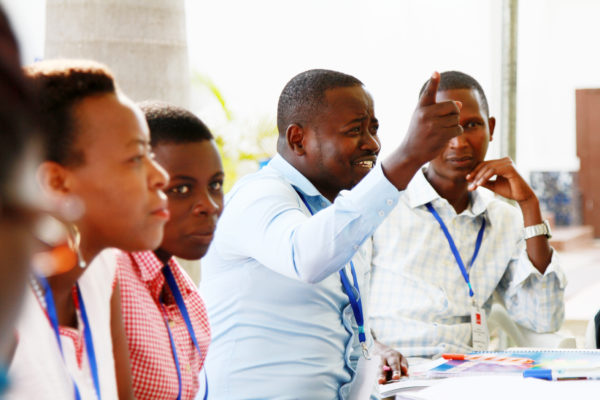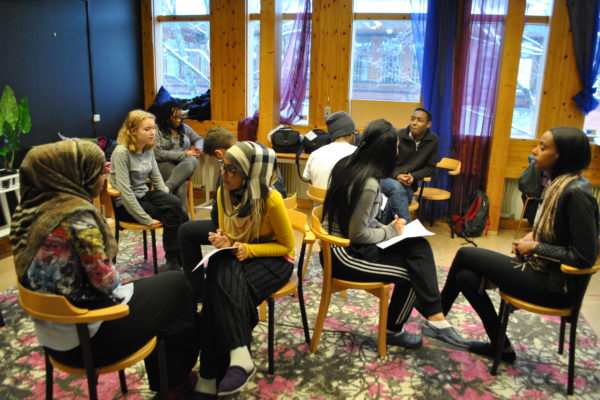Restoring Trust between Police and Communities in Ethiopia - Zenebe’s Story
Before the development of a trust building programme between communities and the police in four Woredas (district-level administrative units) in Addis Ababa, Ethiopia, there were elevated crime rates, particularly in property crimes like vandalism and theft. Simultaneously, violent crimes such as assault and armed robbery remained at a moderate level. Through a partnership between the Ethiopian Police University (EPU) and Interpeace, the implementation of a community security approach, led to improved trust between the police and the community, resulting in notable declines in crime rates and increases in people’s sense of safety.
Zenebe*, a married father of four children and a resident of one of the Woreda witnessed the transformative impact of the trust building dialogues organised by Interpeace. These dialogues provide platforms for community representatives and police officers to discuss local peace, develop problem-solving strategies, and implement capacity-building initiatives. In particular, the scanning, analysis, response, and assessment (SARA) problem-solving approach facilitated joint efforts in identifying and addressing community concerns, supported by the Community GIS Tool (CGIST), which helps to map and analyse data for informed decision-making on safety and crime prevention.
Reflecting on the past, Zenebe recalls the historical marginalisation of community members in police operations, leading to a disconnect between community priorities and police actions, breeding mistrust and suspicion. The trust building programme marked a shift towards collaboration, aiming to involve residents in shaping police services.
"Most of the programme activities were new for all of us. The police in this country did not have the culture to genuinely engage community groups to take an active role in setting priorities and service needs,” Zenebe recalls.
Zenebe recalls how the programme introduced new practices, such as engaging community groups in decision-making processes, fostering inclusivity, and taking proactive measures to enhance community safety. Initiatives like the "shay-bunna" (coffee-tea drinking session) forums, where residents held weekly discussions over a cup of tea or coffee, have strengthened social bonds and facilitated dispute resolution and resource mobilisation.
Following the programme’s implementation, Zenebe and other community members feel empowered to influence security policing in their Woreda., The initiative proves to be an eye-opening experience for both residents and the local police department, instilling a sense of unity and optimism about the future of security. 81% of the community members' responses reflected this positive outcome.
"Because of my participation in the trust-building programme, I am now able to effectively collaborate with the local police in problem identification and resolution. I now believe that the police service at the Woreda level adequately represents my needs and priorities. The local police department is now using inclusive approaches in planning and delivering police services. For example, the police department invited community representatives, including myself, to provide feedback by 2023. This is really impressive, and I've never seen anything like it in my life," says Zenebe.
While celebrating achievement, Zenebe emphasises the importance of sustained engagement from stakeholders to ensure long-term success.
"The local police department's commitment to working closely with community groups to maintain peace at the grassroots level has improved significantly. However, I am convinced that community representatives and police officers require ongoing support to maintain programme outcomes. More specifically, various collaborative problem-solving pieces of training and the CGIST tool are critical to increasing community members and police officers' capacity to deal with community concerns on a long-term basis at the district level."
Zenebe's journey reflects a positive transformation in police-community relations. Sustaining these gains requires collaborative commitment from all stakeholders, aligning with Interpeace’s vision of unity for lasting peace at the grassroots level. As the community looks to the future, expanding the trust-building programme to all regions of Ethiopia remains essential for sustained progress and peacebuilding efforts.
*The name has been changed to ensure security.

